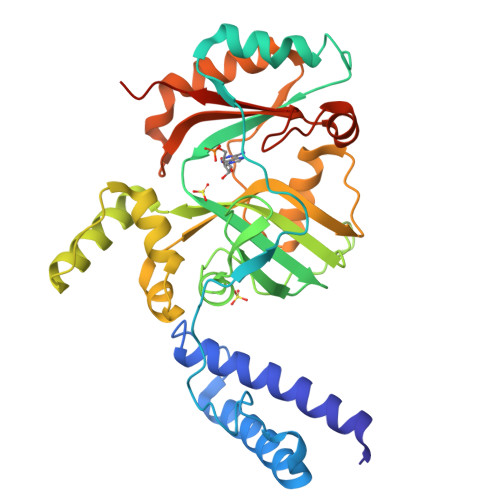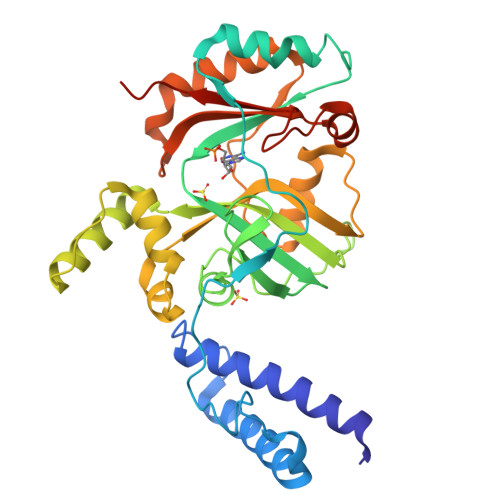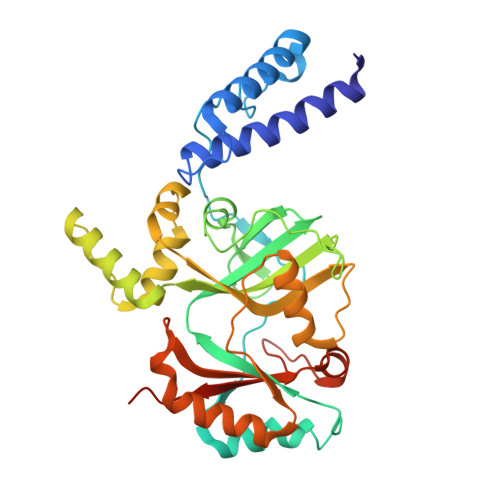Salt bridges at the subdomain interfaces of the adenylation domain and active-site residues of Mycobacterium tuberculosis NAD + -dependent DNA ligase A (MtbLigA) are important for the initial steps of nick-sealing activity.
Afsar, M., Shukla, A., Kumar, N., Ramachandran, R.(2021) Acta Crystallogr D Struct Biol 77: 776-789
- PubMed: 34076591
- DOI: https://doi.org/10.1107/S2059798321003107
- Primary Citation of Related Structures:
6KDU, 6KRH, 6KSC, 6KSD - PubMed Abstract:
NAD + -dependent DNA ligase (LigA) is the principal bacterial ligase and catalyses a multistep ligation reaction. The adenylation (AdD) domain at the N-terminus consists of subdomains 1a and 1b, where subdomain 1a is unique to LigA. Small-angle X-ray scattering and X-ray diffraction studies were used to probe changes in the relative spatial dispositions of the two subdomains during the adenylation reaction. Structural analyses of the inter-subdomain interactions of the AdD domain suggest that salt bridges formed by Glu22, Glu26 and Glu87 of subdomain 1a with Arg144, Arg315 and His240 of subdomain 1b play an important role in stabilizing the intermediate conformations of the two subdomains. E22A, E26A and E87A mutations reduce the in vitro activity by 89%, 64% and 39%, respectively, on a nicked DNA substrate, while they show no activity loss on a pre-adenylated DNA substrate, thus suggesting that the salt bridges are important in the initial steps of the ligation reaction. Furthermore, the E22A, E26A and E87A mutants exhibited extremely delayed growth in complementation assays involving the Escherichia coli GR501 strain, which harbours its own temperature-sensitive LigA. The H236A and H236Y mutants, which involve the residue that stacks against the adenine moiety of AMP, severely impact the activity and the ability to complement the growth-defective E. coli GR501 strain. Analysis of the K123A and K123R mutations in the active site rationalizes their total loss of activity and inability to rescue the growth-defective E. coli GR501 strain.
Organizational Affiliation:
Molecular and Structural Biology Division, CSIR - Central Drug Research Institute, Sector 10, Jankipuram Extension, Sitapur Road, Lucknow, Uttar Pradesh 226 031, India.


















